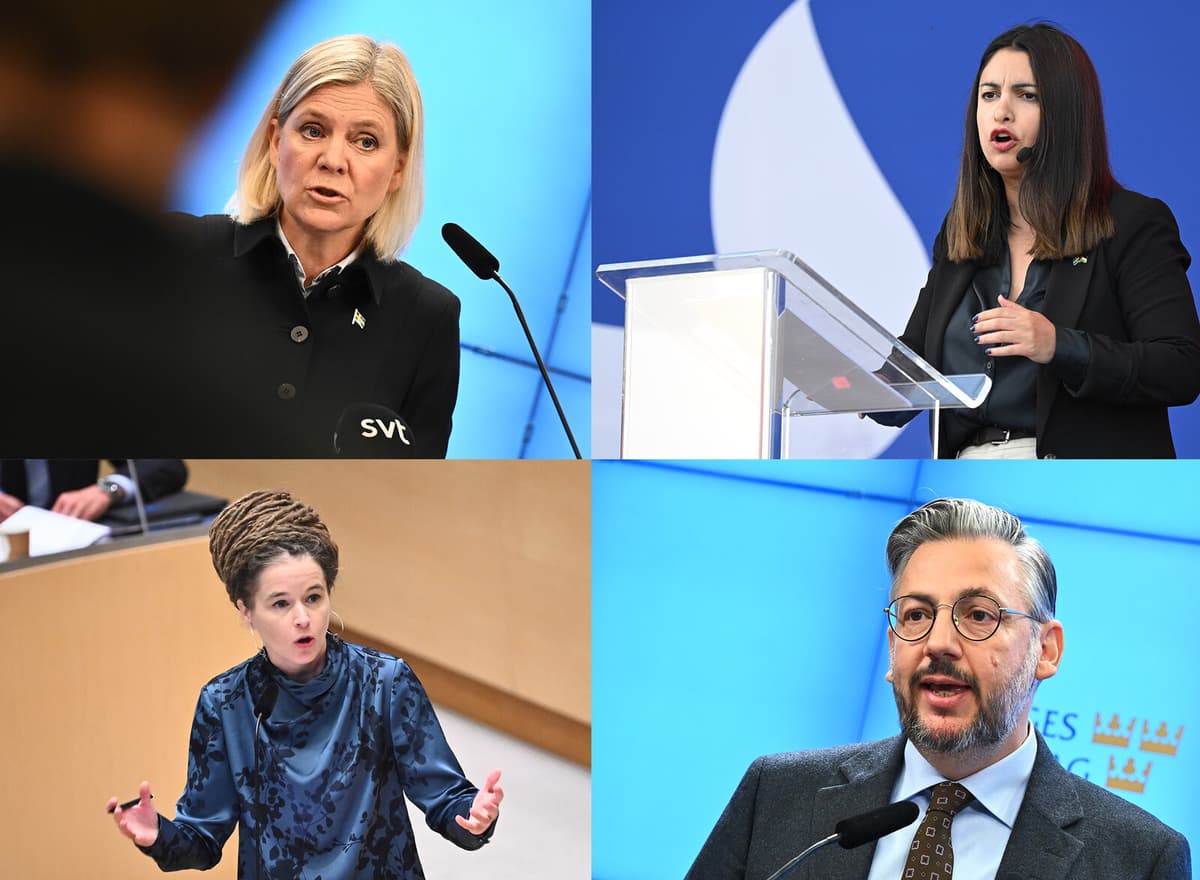All four opposition parties have now presented their budget motions. In several areas, they are heading in the same direction.
All of them want to invest more in welfare, although V goes the furthest and C wants to focus on targeted state grants instead of general grants to municipalities and regions. They also want to do more to reduce climate-affecting emissions. For example, they say no to reducing gasoline tax in 2025.
On the other hand, S, unlike the other parties, says yes to abolishing the flight tax.
In other areas, there are conflicts that could cause problems if the four red-green parties aim for a government cooperation after the next election.
Taxes and Grants
Social Democrat Mikael Damberg, the party's economic policy spokesperson, does not want to say which party he thinks is closest to or furthest from S. He emphasizes that the harsh criticism of the government is shared.
But I think it's fundamentally good that opposition parties profile themselves, show what they themselves think is most important, so that voters understand what the different parties think.
The cracks are most noticeable when it comes to views on taxes and grants. C wants to increase incentives to work, among other things, through a faster phase-out of unemployment benefits and stricter time limits in sickness insurance.
V wants to increase unemployment benefits, sickness insurance, parental insurance, and a higher housing allowance. S, V, and MP want to increase child benefits, while C wants to abolish the child benefit's second-child supplement.
To finance investments in, among other things, welfare and increased grants and benefits, V proposes tax increases of 60 billion kronor. C accepts more or less the government's income tax cuts and wants to reduce employer contributions for companies with five billion kronor.
C in "No Man's Land"
When it comes to migration, it is S that stands out from the other three, who want to see a more generous asylum policy. In the budget motions, this is reflected in the fact that they want Sweden to receive 5,000 quota refugees per year again. S has no such proposal.
Overall, the gap appears to be largest between C and V. V leader Nooshi Dadgostar believes that C is "very alone" in wanting, for example, to reduce child benefits and support for the unemployed.
Unfortunately, the Center Party has ended up in a no man's land in Swedish politics. No one agrees with what they say, she says.
They differ very much from the red-green parties, but also unfortunately from the bourgeois bloc. Now they are far to the right and need to do their homework if they want to have influence in Swedish politics in the future at all.






